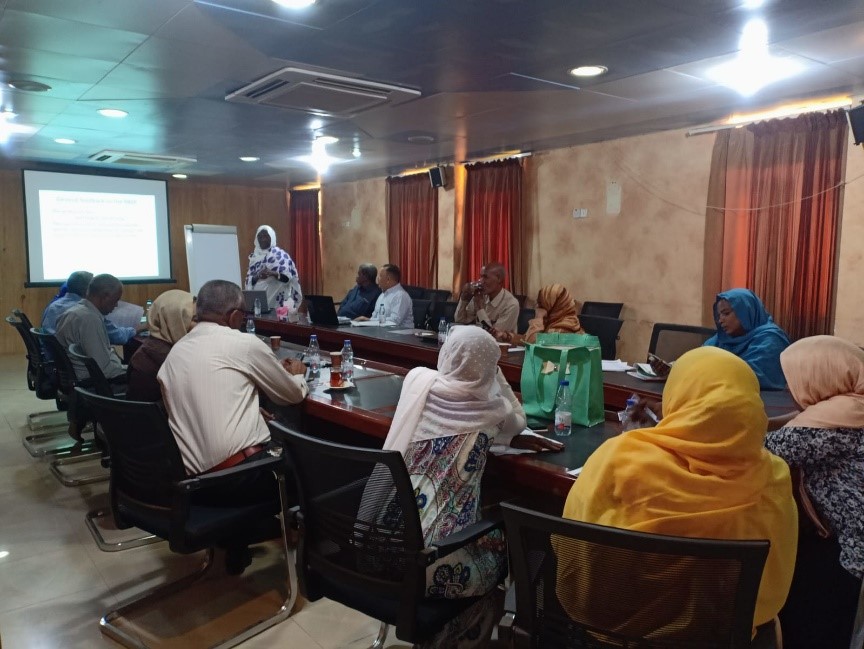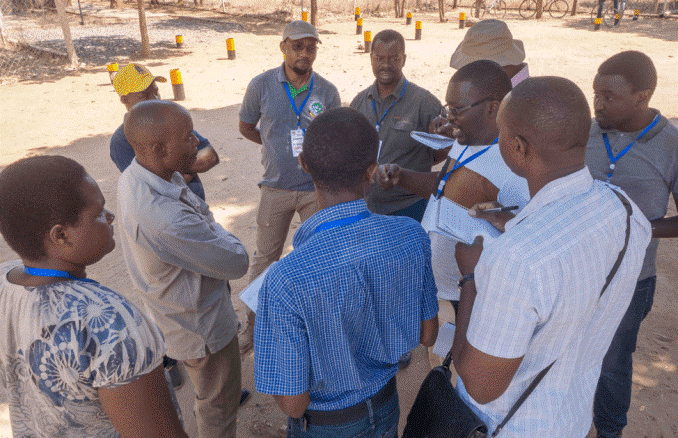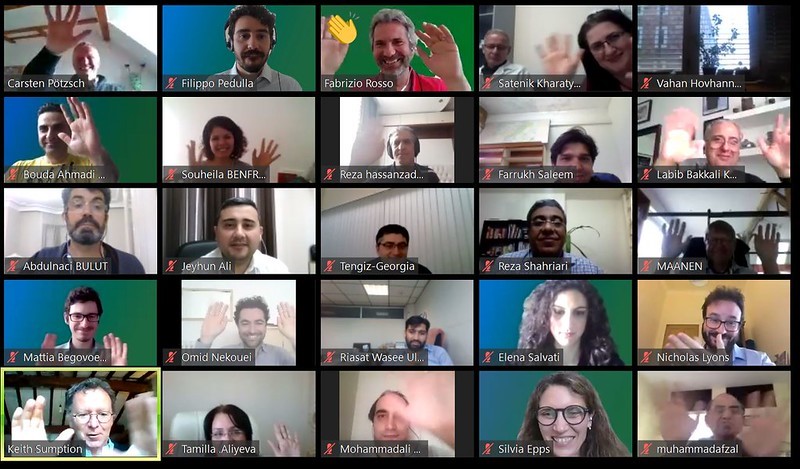Case Study: Integrated Training Approaches
Case Study: Integrated Training Approaches
Integrated training approaches build capacity for FAST surveillance and control
EuFMD’s Pillar II program includes a focus on capacity development for surveillance and improved control of Foot-and-mouth And Similar Transboundary animal diseases (FAST) in the neighbourhood of Europe.
Similarly, under the Pillar III program, EuFMD aims to sustain and enhance the roll out of the GF-TADs Global Strategy for the control of foot-and-mouth disease (FMD) through the development and delivery of a range of globally relevant training courses.

In-country workshop to develop a Risk-Based Strategic Plan, Khartoum, Sudan.
Developing capacity for surveillance and control of FAST involves enhancing the skills of a wide range of individuals, from the veterinarians or veterinary para-professionals working hands-on in the field, to those involved in the design, implementation and evaluation of FAST control strategies within the central government veterinary services.
Similarly, the skills and knowledge required to control FAST effectively are broad, from skills in outbreak investigation, through to socioeconomic impact assessment, participatory data collection, stakeholder consultation or policy development.
EuFMD has developed a wide range of training methodologies to meet these needs, from open access self-directed online courses to in-country small group expert consultations, and everything in between! Experience to date has shown that a blended approach, leveraging the benefits of online training, such as the ability to reach large audiences, and combining this with the ability to provide more individualised training in a live workshop setting, is likely to be most successful.
This integrated “training schemes” approach has been applied to building the specialized skills needed to develop FAST control strategies. A first step involves in-depth virtual learning courses, on topics such as risk analysis, applying public-private partnerships to FAST control, socioeconomic impact assessment or post-vaccination monitoring. The in-depth courses are made available to a global audience of veterinarians working in central veterinary services, and involve approximately 24 hours of study over a six-week period.
The courses include a number of applied assignments, for which the participants receive individualized feedback. Some of the participants who complete the in-depth course are then invited to take part in a regional workshops, in which the learnings of the online course are applied to the specific context of the region and follow-up actions for each country defined. Finally, in some cases, individualized country support is offered through national workshops or EuFMD’s PCP support officers who provide expert advice remotely.
Example of a video tutorial.
Some recent applications of this approach have included:
Bringing researchers and policy-makers together for vaccination research

Vaccines, Vaccination and Post-Vaccination Monitoring Summer School
Under a project conducted in partnership with The Pirbright Institute and supported by the UK Biotechnology and Biological Sciences Research Council (BBSRC) Global Challenges Research Fund, Strategic Training Awards for Research Skills Programme (GCRF-STARS), an in-depth training course on Vaccines, Vaccination and Post Vaccination Monitoring was developed. This online course was followed by a research summer school for selected participants, which brought together researchers and government veterinarians from Southern and Eastern African countries at the SACIDs Foundation for One Health, Sokoine University, Tanzania. Participants worked to develop proposals for research studies that aimed to generate findings important for policy development. Following the Summer School, the participants were provided with remote expert support to implement their studies, the first of which has recently been completed.
Virtual workshops on applying socioeconomic impact assessment and public-private partnerships to policy development and support
Dr Keith Sumption and Dr Isabelle Dieuzy-Labaye
(OIE) introduce virtual learning courses on public-private partnerships
Two in-depth virtual learning courses, on socioeconomic impact assessment of FAST and public-private partnerships applied to FAST control were intended to be followed by a series of regional workshops for countries in the European neighbourhood.
When COVID-19 struck, these workshops were replaced by a virtual format, in which participants met for a series of meetings, which combined plenary presentations with group discussions held in breakout rooms. Each participating country
defined a series of follow-up actions through which to apply what they had learned in the course to policy development in their own country.
Find out more
Click the links below to find out more:
Online course: Public-Private Partnerships: Opportunities for Progressive Control of Transboundary Animal DiseasesVaccines, Vaccination and Post-Vaccination Monitoring Summer School 2019
